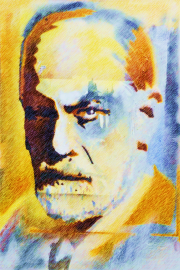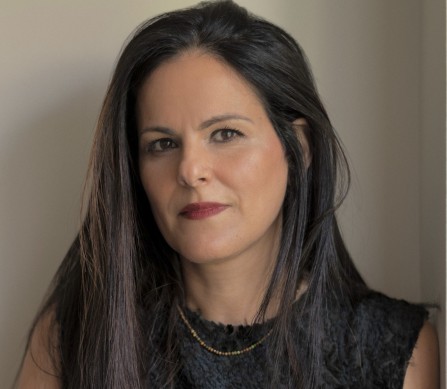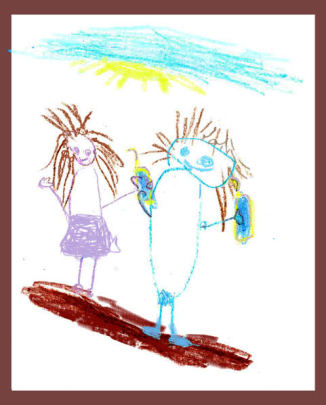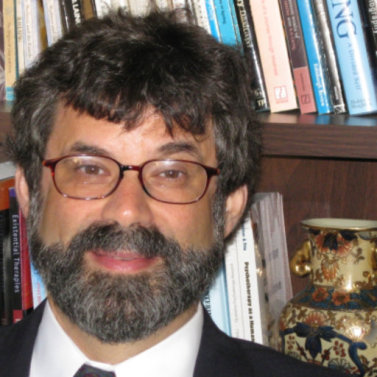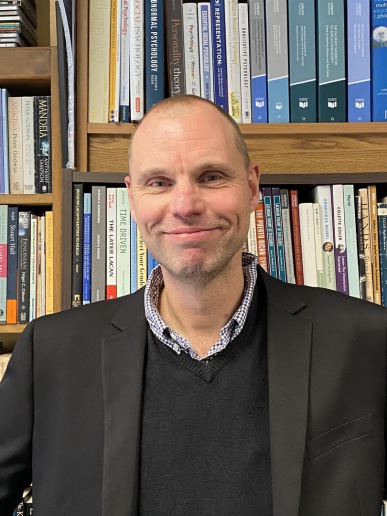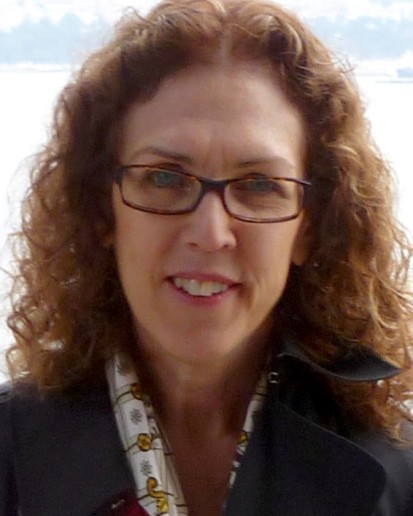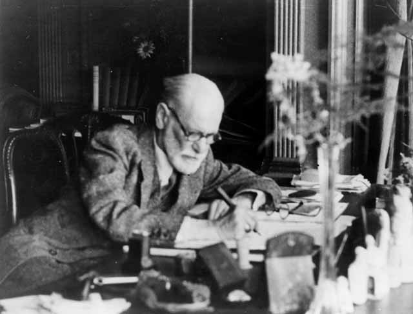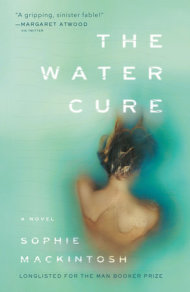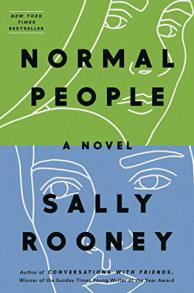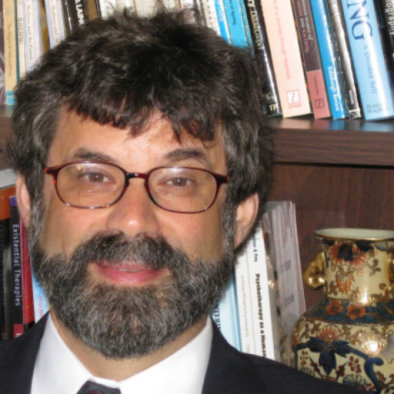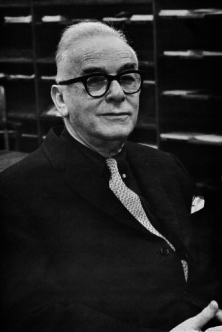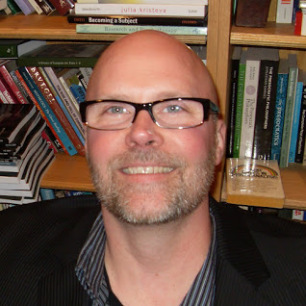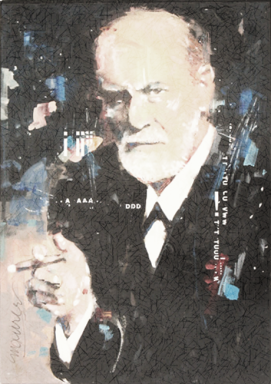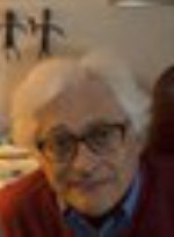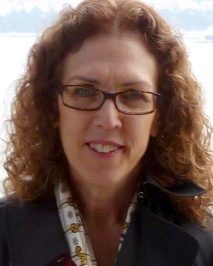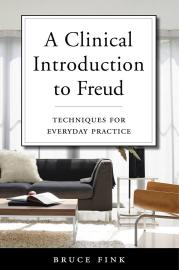
Public Events & Continuing Education
Comprehensive Survey of the Complete Psychological Works Of Freud
Begins September 2024
This course is designed for psychologists, social workers, other mental health professionals, students in university mental health programs, and candidates in the analytic training program. There is no requirement that participants have a background in mental health.
Throughout the course, you will be delving into: Beyond the Pleasure Principle, Project for a Scientific Psychology, Studies on Hysteria, The Interpretation of Dreams, Three Essays on a Theory of Sexuality, Totem and Taboo, Group Psychology and the Analysis of the Ego, Analysis Terminable and Interminable, Civilization and Its Discontents, among many others.
From the writings of Freud:
"We see then the disappearance of the conscious personality, the predominance of the conscious personality, and the predominance of the unconscious personality, turning by means of suggestion and contagion of feelings and ideas in an identical direction, the tendency to immediately transform the suggest ideas into acts; these, we see are the principle characteristics of the individual forming part of a group." - Group Psychology
Format: Lecture and discussion
Number of Sessions: 20
Location: Classes via Zoom
Tuition: $600 Payment plans are available and sliding scale tuition is provided on an as-needed basis.
Continuing Education Credits: 40 continuing education credits are available if all classes are attended. For more information on continuing education credits contact administration@pghpsa.org.
Class Dates: Monday evenings, 7:00-9:00 p.m. via Zoom, beginning in September 2024:
9/9, 9/23, 10/7, 10/21, 11/4, 11/18, 12/2, 12/16, 1/6, 1/20, 2/3, 2/17, 3/3, 3/17, 3/31, 4/14, 4/28, 5/12, 6/2, 6/9
Continuing Education -
Psychologists
Pittsburgh Psychoanalytic Center is approved by the American Psychological
Association to sponsor continuing education programs for psychologists. Pittsburgh Psychoanalytic Center maintains responsibility for the program and its
content.
Social Workers, Licensed Marriage and Family Therapists, LPCs: The Pittsburgh Psychoanalytic Centers is approved by the American Psychological Association to sponsor continuing education for psychologists. The Pittsburgh Psychoanalytic Center maintains responsibility for the program and its content. The Pennsylvania Board of Social Work approves of credits issued by APA sponsors. Therefore, the Pittsburgh Psychoanalytic Center is able to offer continuing education credits to social workers and counselors per Pennsylvania Code, Section 49.
Notice for Out of State Students:
In the state of Pennsylvania, Social Workers and Councilors can seek re-licensure using continuing education credits awarded by the Pittsburgh Psychoanalytic Center by virtue of PPC’s accreditation by the American Psychological Association (APA). Many states have similar laws and/or regulations. If you are applying for training at the PPC and you reside in another state, you can call your State’s licensing agency or review your state law to determine if the PPC continuing education credits will be accepted.
To register, access the application below:
Freud Course Application March 2024 (2).[...]
Microsoft Word document [84.5 KB]
7:00 p.m. - 9:00 p.m.
Via Zoom
$80 with 2 CMEs/CEs
$30 without CMEs/CEs
Learning Objectives:
Following this presentation, participants will be able to:
1) Define inherited trauma.
2) Explain the term Erotic Reparation.
3) Explain the relation between reparation and repetition.
4) Identify the analyst’s dissociation as a defense against family trauma.
About our
Presenter:
Galit Atlas, Ph.D. is on the faculty at NYU Postdoctoral Program in Psychotherapy and Psychoanalysis. She is the author of the books The
Enigma of Desire: Sex, Longing and Belonging in Psychoanalysis and Dramatic Dialogue: Contemporary Clinical Practice (co-authored with Lewis Aron), and the editor and a contributor to When Minds
Meet: The Work of Lewis Aron. Her most recent book, Emotional Inheritance: A Therapist, Her Patients and the Legacy of Trauma, is an international bestseller, translated into 25 languages. Atlas
serves on the editorial boards of Psychoanalytic Dialogues and Psychoanalytic Perspectives. She is a recipient of the André François Award, the NADTA Research Award, and the Gradiva Award. She is a
psychoanalyst and clinical supervisor in private practice in New York City, and she teaches and lectures throughout the United States and internationally.
References
1) Atlas, G. (2022.) Emotional inheritance: A therapist, her patients and the legacy of trauma. New York: Little, Brown.
2) Katz, G. (2015). Repressed ghosts and dissociated vampires in the enacted dimension of psychoanalytic treatment. Psychoanalytic Quarterly, 84: 389-414.
CONTINUING MEDICAL EDUCATION (CME)
This activity has been planned and implemented in accordance with the accreditation requirements and policies of the Accreditation Council for Continuing Medical
Education (ACCME) through the joint providership of American Psychoanalytic Association and Pittsburgh Psychoanalytic Center. The American Psychoanalytic Association is accredited by the ACCME to
provide continuing medical education for physicians.”
The American Psychoanalytic Association designates this Live Activity for a maximum of [2] AMA PRA Category 1 Credit(s)™. Physicians should claim only the credit commensurate with the extent
of their participation in the activity.
IMPORTANT DISCLOSURE INFORMATION FOR ALL LEARNERS: None of the planners and presenters for this educational activity have relevant financial relationship(s)* to disclose with ineligible companies
whose primary business is producing, marketing, selling, re-selling, or distributing healthcare products used by or on patients. *Financial relationships are relevant if the educational content an
individual can control is related to the business lines or products of the ineligible company.
CONTINUING EDUCATION- PSYCHOLOGISTS
The Pittsburgh Psychoanalytic Center is approved by the American Psychological Association to sponsor continuing education for psychologists. The Pittsburgh
Psychoanalytic Center maintains responsibility for the program and its content.
CONTINUING EDUCATION- SOCIAL WORKERS, LICENSED MARRIAGE AND FAMILY THERAPISTS, LPCS
The Pittsburgh Psychoanalytic Center is approved by the American Psychological Association (APA) to sponsor continuing education programs. The APA is an approved
provider of continuing education programs for Social Workers, Licensed Marriage and Family Therapists and LPCs.
PLEASE NOTE: Participants must pay tuition fee, sign in, attend the entire presentation, and complete an evaluation in order to receive a certificate of completion. Participants not fulfilling these requirements will not receive a certificate. Partial credit is not available.
TICKETS AVAILABLE NOW ON TICKETLEAP:
http://pittsburgh-psychoanalytic-center.ticketleap.com/emotional-inheritance-a-therapist-her-patients-and-the-legacy-o/
Need more information?
Call Pittsburgh Psychoanalytic Center @ 412-661-4224 or email: administration@pghpsa.org
7:00 p.m. - 9:00 p.m.
Via Zoom
$40 for 2 CMEs/CEs
$20 without CMEs/CEs
Learning Objectives:
Following this presentation, participants will be able to:
1) Define the field of rhetoric and identify at least one area of overlap between rhetoric and psychoanalysis as fields of inquiry.
2) Name several rhetorical tropes and figures and describe their use in speech.
About our
Presenter:
Calum Matheson, Ph.D., is the Chair of the Department of Communication at the University of Pittsburgh where his work centers on rhetoric, media, and psychoanalysis as
means to study topics like conspiracy theories, disinformation, Internet subcultures, and the cultural impact of nuclear weapons. He is a graduate of the Pittsburgh Psychoanalytic Center and a member
of the faculty.
CONTINUING MEDICAL EDUCATION (CME)
This activity has been planned and implemented in accordance with the accreditation requirements and policies of the Accreditation Council for Continuing Medical
Education (ACCME) through the joint providership of American Psychoanalytic Association and (name of nonaccredited provider). The American Psychoanalytic Association is accredited by the ACCME to
provide continuing medical education for physicians.”
The American Psychoanalytic Association designates this Live Activity for a maximum of [2] AMA PRA Category 1 Credit(s)™. Physicians should claim only the credit commensurate with the extent
of their participation in the activity.
IMPORTANT DISCLOSURE INFORMATION FOR ALL LEARNERS: None of the planners and presenters for this educational activity have relevant financial relationship(s)* to disclose with ineligible companies
whose primary business is producing, marketing, selling, re-selling, or distributing healthcare products used by or on patients. *Financial relationships are relevant if the educational content an
individual can control is related to the business lines or products of the ineligible company.
CONTINUING EDUCATION- PSYCHOLOGISTS
The Pittsburgh Psychoanalytic Center is approved by the American Psychological Association to sponsor continuing education for psychologists. The Pittsburgh
Psychoanalytic Center maintains responsibility for the program and its content.
CONTINUING EDUCATION- SOCIAL WORKERS, LICENSED MARRIAGE AND FAMILY THERAPISTS, LPCS
The Pittsburgh Psychoanalytic Center is approved by the American Psychological Association (APA) to sponsor continuing education programs. The APA is an approved
provider of continuing education programs for Social Workers, Licensed Marriage and Family Therapists and LPCs.
the extent of their participation in the activity.
PLEASE NOTE: Participants must pay tuition fee, sign in, attend the entire presentation, and complete an evaluation in order to receive a
certificate of completion. Participants not fulfilling these requirements will not receive a certificate. Partial credit is not available.
PURCHASE YOUR TICKETS ONLINE NOW ON TICKETLEAP by clicking on this link:
http://pittsburgh-psychoanalytic-center.ticketleap.com/potential-contributions-of-rhetorical-theory-to-psychoanalysis-/
Need more information?
Call Pittsburgh Psychoanalytic Center @ 412-661-4224 or email: administration@pghpsa.org
SUGGESTED AUDIENCE: PSYCHIATRISTS, PSYCHOLOGISTS, SOCIAL WORKERS, COUNSELORS AND OTHER MENTAL HEALTH PROFESSIONALS
Thursday, May 25, 2023
7:00 p.m. - 9:00 p.m.
Via Zoom
COST:
$40 with CEs/CMEs
$20 without CEs/CMEs
Though adaptation is a concept internal to all psychoanalytic theory and practice, perhaps no one in the psychoanalytic tradition emphasized adaptation more than Robert Langs. This
presentation compares the clinical concepts of “adaptation” in Robert Langs and Carl Jung, examining their central similarities and differences as well as deriving clinical implications from this
comparison.
Learning Objectives:
1. Analyze the clinical significance of adaptation for psychoanalytic clinical theory and practice.
2. Compare the different concepts of adaptation in Langs and Jung and how each might supplement the other.
3. Develop clinical principles based on the comparison of Lange and Jung’s concepts of adaptation.
About Our Presenter:
John R. White, PhD, LPC is a practicing Jungian psychoanalyst in Pittsburgh PA and Coordinator of the
C. G. Jung Institute Analyst Training Program of Pittsburgh. He has more than forty publications in both philosophy and psychoanalysis. His book Adaptation and Psychotherapy. Langs and
Analytical Psychology, was published by Rowman & Littlefield, 2023.
Accreditation Statement:
This activity has been planned and implemented in accordance with the requirements and policies of the Accreditation Council for Continuing Medical Education (ACCME)
through the joint providership of American Psychoanalytic Association and the Pittsburgh Psychoanalytic Center. The American Psychoanalytic Association is accredited by the ACCME to provide
continuing medical education for physicians.
Credit Statement:
The American Psychoanalytic Association designates this Live Activity for a maximum of (2) AMA PRA Category 1 Credit(s)™. Physicians
should claim only the credit commensurate with the extent of their participation in the activity.
Continuing Education - Psychologists
Pittsburgh Psychoanalytic Center is approved by the American Psychological Association to sponsor continuing education programs for psychologists. Pittsburgh
Psychoanalytic Center maintains responsibility for the program and its content.
Disclosure Statement:
IMPORTANT DISCLOSURE INFORMATION FOR ALL LEARNERS: None of the planners and presenters for this educational activity have relevant financial relationship(s)* to disclose
with ineligible companies whose primary business is producing, marketing, selling, re-selling, or distributing healthcare products used by or on patients. *Financial relationships are relevant if the
educational content an individual can control is related to the business lines or products of the ineligible company.
Social Workers, Licensed Marriage and Family Therapists, LPCs: The Pittsburgh Psychoanalytic Centers is
approved by the American Psychological Association to sponsor continuing education for psychologists. The Pittsburgh Psychoanalytic Center maintains responsibility for the program and its content.
The Pennsylvania Board of Social Work approves of credits issued by APA sponsors. Therefore, the Pittsburgh Psychoanalytic Center is able to offer continuing education credits to social workers and
counselors per Pennsylvania Code, Section 49.
TICKETS NOW AVAILABLE VIA TICKETLEAP:
http://pittsburgh-psychoanalytic-center.ticketleap.com/adaptation-in-clinical-practice-robert-langs-and-carl-jung---pr/
Need more information? Call Pittsburgh Psychoanalytic Center @ 412-661-4224 or email: administration@pghpsa.org
This six-session child psychotherapy course will focus on illustrating aspects of child development and child therapy, clinical theory, therapeutic listening (to words, communications through nonverbal behaviors and play), and technique. We will present case material and clinical vignettes, supplemented by at least one reading for each session. One session of the series will focus on consultation with parents, teachers and other professionals, including issues of confidentiality and the choice of material one can present in professional settings.
Case material will help participants to understand how clinical interaction brings to life aspects of theory and development, and illustrates clinical impressions, choice of interventions and their impact. Presenters will pay special attention to the interplay between inevitable therapeutic misattunements or ruptures and subsequent repair in the therapeutic relationship. We will also be sensitive to the role of transference/countertransference and enactments in sessions with children and adolescents.
This course is designed for child and adult clinicians who have been in practice for at least two years. Questions can be directed to the office and will be responded to as soon as possible.
____________________________________________________________________________
Dates: 6 Tuesday evenings as follows: 2/21, 2/28, 3/7, 3/14, 3/21 and 3/28.
Time:
7:00-9:00 p.m.
Format: Lecture and discussion
Location: Pittsburgh Psychoanalytic Center Library
401 Shady Ave, Suite B101
Pittsburgh PA 15206
12 Continuing
Education Credits available for psychologists, psychiatrists, social workers, counselors and other mental health professionals.
Tuition: Early Registration by January 28, 2023:
$250
After January 28, 2023: $300
About the Instructors:
Eleanor C. Irwin, Ph.D., is a clinical psychologist
and a child and adult certified psychoanalyst. Dr. Irwin is a Clinical Professor of Psychiatry in the Department of Psychiatry at the University of Pittsburgh and a faculty member, past president and
former chair of the Child Analysis committee of the Pittsburgh Psychoanalytic Center. The author of many articles and book chapters about the mental health issues of children and their
families, she has also made films about play therapy and the arts in individual, family and group work.
Ronald G. Jalbert, Ph.D., is a child and adult
Jungian analyst and psychologist in private practice. Dr. Jalbert is a faculty member and chair of the Child Analysis committee of the Pittsburgh Psychoanalytic Center and an adjunct clinical
professor in the Clinical Psychology Department at Duquesne University. He has presented widely both in the United States and abroad on such topics as dreams, symbol formation, uses of
expressive arts in psychodynamic therapy and ethics in the analytic field. Publications include several translations of works by French analysts and, most recently, one essay-review of two analytic
books on Hamlet and another on an inaugural issue of a French analytic journal.
Sharon Leak, Ph.D., is a clinical
psychologist in private practice and on the faculty of the Pittsburgh Psychoanalytic Center. She specializes in psychological testing and treatment of children,
adolescents, and adults with mood and anxiety disorders, as well as learning disabilities and attention problems. Dr. Leak integrates psychodynamic and neurocognitive perspectives in
psychotherapy, psychological testing, and consultation with schools and clinicians, as well as in her writing of journal articles and book chapters.
Diana Schwab, M.Ed.,
LCSW, is a
psychotherapist in private practice who focuses on children and families, applying her expertise across a number of settings. Ms. Schwab is an adjunct faculty member at the University of
Pittsburgh, a developmental specialist in international adoption at Kids Plus Pediatrics, and a consultant to a variety of organizations that support children and families. Understanding the
role of development and relationships is at the center of her work, whether working as a psychotherapist or as a consultant providing reflective consultation.
Accreditation Statement:
This activity has been planned and implemented in accordance with the requirements and policies of the Accreditation Council for Continuing Medical Education (ACCME) through the joint providership of
American Psychoanalytic Association and the Pittsburgh Psychoanalytic Center. The American Psychoanalytic Association is accredited by the ACCME to provide continuing medical education for
physicians.
Credit Statement:
The American Psychoanalytic Association designates this Live Activity for a maximum of (12) AMA PRA Category 1 Credit(s)™. Physicians should claim only the credit
commensurate with the extent of their participation in the activity.
Continuing Education - Psychologists:
Pittsburgh Psychoanalytic Center is approved by the American Psychological Association to sponsor continuing education programs for psychologists. Pittsburgh Psychoanalytic Center maintains
responsibility for the program and its content.
Disclosure Statement:
IMPORTANT DISCLOSURE INFORMATION FOR ALL LEARNERS: None of the planners and presenters for this educational activity have relevant financial relationship(s)* to disclose with ineligible companies
whose primary business is producing, marketing, selling, re-selling, or distributing healthcare products used by or on patients. *Financial relationships are relevant if the educational content an
individual can control is related to the business lines or products of the ineligible company.
Social Workers, Licensed Marriage and Family Therapists, LPCs: The Pittsburgh Psychoanalytic Centers is approved by the American Psychological Association to sponsor
continuing education for psychologists. The Pittsburgh Psychoanalytic Center maintains responsibility for the program and its content. The Pennsylvania Board of Social Work approves of credits issued
by APA sponsors. Therefore, the Pittsburgh Psychoanalytic Center is able to offer continuing education credits to social workers and counselors per Pennsylvania Code, Section 49.
TICKETS NOW AVAILABLE VIA TICKETLEAP:
http://pittsburgh-psychoanalytic-center.ticketleap.com/six-session-child-psychodynamic-psychotherapy-course-spring-202/
For more information call: 412-661-4224; visit our website at http://www.pghpsa.org; or email us at : administration@pghpsa.org.
SUGGESTED AUDIENCE: PSYCHIATRISTS, PSYCHOLOGISTS, SOCIAL WORKERS, COUNSELORS AND OTHER MENTAL HEALTH PROFESSIONALS
Wednesday, September 21, 2022
7:00 p.m. - 9:00 p.m.
Via
Zoom
COST:
$40 with CEs/CMEs
$20 without CEs/CMEs
This paper examines the impact of America’s racial reckoning on
psychoanalytic theory since the murder of George Floyd. It analyzes the claims of two analysts in particular, Dr. Aruna Khilanani and Dr. Donald Moss, both of whom received a lot of adverse publicity
for their reflections on “the White unconscious”.
Learning Objectives:
1). Analyze the importance of psychoanalysis addressing widespread social injustice, and the motives that underlie it.
2). Summarize the dangers of speculating about the “White unconscious," or indeed
the "collective unconscious" of any ethnic group.
3). Discuss alternative ways of framing the issues involved in these
debates.
About Our Presenter:
Daniel Burston, Ph.D. is an Associate Professor of Psychology at Duquesne University and the author of numerous books and journal articles on the history of psychoanalysis, psychiatry and psychology. His most recent (2020) book is entitled Psychoanalysis, Politics and the Postmodern University published by Palgrave MacMillen.
Accreditation Statement:
This activity has been planned and implemented in accordance with the requirements and policies of the Accreditation Council for Continuing Medical Education (ACCME)
through the joint providership of American Psychoanalytic Association and the Pittsburgh Psychoanalytic Center. The American Psychoanalytic Association is accredited by the ACCME to provide
continuing medical education for physicians.
The American Psychoanalytic Association designates this Live Activity for a maximum of (2) AMA PRA Category 1 Credit(s)™. Physicians
should claim only the credit commensurate with the extent of their participation in the activity.
IMPORTANT DISCLOSURE INFORMATION FOR ALL LEARNERS: None of the planners and presenters for this educational activity have relevant financial relationship(s)* to disclose
with ineligible companies whose primary business is producing, marketing, selling, re-selling, or distributing healthcare products used by or on patients. *Financial relationships are relevant if the
educational content an individual can control is related to the business lines or products of the ineligible company.
Continuing Education - Psychologists
Pittsburgh Psychoanalytic Center is approved
by the American Psychological Association to sponsor continuing education programs for psychologists. Pittsburgh Psychoanalytic Center maintains responsibility for the program and its
content.
Continuing Education - Social Workers, Licensed Marriage and Family Therapists, LPCs: The Pittsburgh
Psychoanalytic Center is approved by the American Psychological Association to sponsor continuing education programs. The APA is an approved provider of continuing education programs for Social
Workers, Licensed Marriage and Family Therapists and LPCs.
TICKETS NOW AVAILABLE VIA TICKETLEAP:
http://pittsburgh-psychoanalytic-center.ticketleap.com/
psychoanalysis-and-americas-racial-reckoning-a-critique-of-khil/
Need more information? Call Pittsburgh Psychoanalytic Center @ 412-661-4224 or
email: administration@pghpsa.org
James T. McLaughlin Training Program
Registration is now open for the Pittsburgh Psychoanalytic Center's fall classes in psychodynamic psychotherapy. Understand, interpret, and explore the in-depth psychological approaches to the complexities of the mind. Classes, which are offered remotely, offer rich and clinically relevant readings on theory and technique to support the professional growth of mental health professionals. (You may participate in Year 1 without making a commitment to the Advanced Year course.)
Continuing Education Credits are available for psychiatrists, psychologists, and LPC, MSW, LCSW’s. Pittsburgh Psychoanalytic Center is a member of the American Psychoanalytic Association.
Year 1 Course: Participants for this program would include anyone who is developing an identity as a psychotherapist and/or would like further knowledge of psychodynamic psychotherapy, or those who are looking to enhance their practices. (30 Wednesday or Thursday evenings, 7-9 p.m.,classes start in September) 60 CE/CMEs available.
Advanced Year Course: Participants would include anyone who participated in Year 1 or has knowledge of psychodynamic psychotherapy but would like to develop greater understanding. (10 Monday evenings, 7-9 p.m., classes start in October) 20 CE/CMEs available.
Accreditation Statement:
This activity has been planned and implemented in accordance with the requirements and policies of the Accreditation Council for Continuing Medical Education (ACCME)
through the joint providership of American Psychoanalytic Association and the Pittsburgh Psychoanalytic Center. The American Psychoanalytic Association is accredited by the ACCME to provide
continuing medical education for physicians.
The American Psychoanalytic Association designates this Live Activity for a maximum of (60) AMA PRA Category 1 Credit(s)™. Physicians
should claim only the credit commensurate with the extent of their participation in the activity.
IMPORTANT DISCLOSURE INFORMATION FOR ALL LEARNERS: None of the planners and presenters for this educational activity have relevant financial relationship(s)* to disclose
with ineligible companies whose primary business is producing, marketing, selling, re-selling, or distributing healthcare products used by or on patients. *Financial relationships are relevant if the
educational content an individual can control is related to the business lines or products of the ineligible company.
Continuing Education - Psychologists
Pittsburgh Psychoanalytic Center is approved by the American Psychological Association to sponsor continuing
education programs for psychologists. Pittsburgh Psychoanalytic Center maintains responsibility for the program and its content.
Continuing Education - Social Workers, Licensed Marriage and Family Therapists, LPCs: The
Pittsburgh Psychoanalytic Center is approved by the American Psychological Association to sponsor continuing education programs. The APA is an approved provider of continuing education programs for
Social Workers, Licensed Marriage and Family Therapists and LPCs.
Need more information? Call us at 412-661-4224; email: administration@pghpsa.org
______________________________________________________________________________
THIS IS WHAT YOU MISSED IN 2021:
Friday, November 19, 2021
7:00 p.m. - 9:00 p.m.
via Zoom
COST: $40 for 2 CMEs/CEs
$20 without CMEs/CEs
Why is libidinal “enjoyment” such an integral part of racism and racial identity? How do such modes of enjoyment – or jouissance – involve attributions of narcissistic libidinal treasures (our country, our culture, our way of life, etc.) that are always at risk of being stolen? How, moreover, do such forms of enjoyment entail the presumption that others are enjoying ‘beyond their station’, in ways are both illicit and that threaten me with castration? This talk will explore how the Lacanian reinvention of the Freudian notion of libido helps shed light on many facets of contemporary racism. It will link ideas of drive, superego, fantasy and excess-stimulation to racism as a type of ‘passionate investment’. In so doing, we will also consider how many of the most common everyday notions pertaining to racism (notions of intolerance, unconscious bias, projection, ignorance) are perhaps inadequate in grappling with the persistence of racism today.
Learning Objectives:
After attending this talk participants will be
able to:
1. Name and explain the crucial elements of Lacan's notion of jouissance (or libidinal enjoyment) and how this concept helps in understanding racism in the contemporary
world.
2. Explain how race can be understood, psychoanalytically, as libidinal, entailing fantasies of
narcissistic treasures threatened by other’s usurping and appropriation of these treasures.
About Our Presenter:
Derek Hook, Ph.D. is an associate professor of psychology and
clinical supervisor in the department of psychology at Duquesne University. He is the author of 'Six Moments in Lacan' and 'A Critical Psychology of the Postcolonial' and, along with Calum Neill, he
edits to Palgrave Lacan Series. His most recent publication is a volume, edited with Sheldon George, entitled 'Lacan and Race'. Along with Stijn Vanheule and Calum Neill he is the editor of the
four-volume series 'Reading Lacan's Ecrits'.
Continuing Medical Education Statement
This activity has been planned and implemented in accordance with
the accreditation requirements and policies of the Accreditation Council for Continuing Medical Education through the joint providership of the American Psychoanalytic Association and Pittsburgh
Psychoanalytic Center. The American Psychoanalytic Association is accredited by the ACCME to provide continuing medical education for physicians. The American Psychoanalytic Association designates
this Live Activity for a maximum number of (2) AMA PRA Category 1 Credit(s)™. Physicians should claim only the credit commensurate with the extent of their participation in the activity.
Important Disclosure Information For
All Learners
None of the planners and presenters of this CME program have any relevant financial
relationships to disclose.
APA-American Psychological Association Statement
Pittsburgh Psychoanalytic Center is approved by the American Psychological Association to
sponsor continuing education programs for psychologists.
Pittsburgh Psychoanalytic Center maintains responsibility for the program and its content.
This program is being offered for 2.0 continuing education
credits.
Participants must pay tuition fee, sign in, attend the entire seminar, and complete an evaluation in order to receive a
certificate of completion. Participants not fulfilling these requirements will not receive a certificate. Partial credit is not available.
TICKETS
NOW AVAILABLE VIA TICKETLEAP!
http://pittsburgh-psychoanalytic-center.ticketleap.com/racism-as-enjoyment-libido-as-substance-of-race/
Need more information? Call Pittsburgh Psychoanalytic Center @ 412-661-4224 or email: administration@pghpsa.org
____________________________________________________________________________________________
Via Zoom
7:00 p.m. - 9:00 p.m.
COST: $30 with 2 CMEs/CEs
Harvey (2020) illuminates the experience of the uncanny gaze in the non-disabled person who
encounters a child with a physical difference. "The onlooker is left feeling uncertain as to what category this person falls into, eliciting feelings of both the familiar and unfamiliar, the
frightening and the attractive." As the mother of a child with Moebius Syndrome, a congenital form of facial paralysis, whose face looked visibly different from birth, Harvey's observation that "the
mother's sense of self, and her own feelings of unfamiliarity within herself, never quite settle because her subjectivity is constantly disrupted by others' responses to her child. . .
amplifying her own ambivalence," makes psychological sense of Dr. Hershberg's own unique maternal experience.
Dr. Hershberg will describe her maternal self-experience in greater depth with reference to maternal gazes including the loving empathic mother and "the uncanny" ambivalent (m)other, contextualized
by Winnicott's (1971) template of the mother’s face as a mirror for the baby's image of herself. In addition, Dr. Hershberg will include the impact of other salient gazes: the paternal gaze, the
grandmother’s gaze, the medical gaze and the analyst's gaze. Her daughter's writings and vignettes will provide a window into how a creatively astute, yet vulnerable, child expresses her
experiences of alienation, rebellion and reparation, involving her attract ion to superheroes, creation myths and Beauty and the Beast, as well as how her loving and assertive gaze
helped her mother.
Finally, Dr. Hershberg will examine the way these subjective maternal experiences have contributed to her analytic sensibility and view of difference in her clinical work.
Learning Objectives:
Following this presentation, participants will be able to:
1. Identify the emotional impact of the uncanny gaze expressed by a non-
disabled mother of a child with a visible
difference.
2. Describe the concept of 'the mother's face as a mirror' described
by Winnicott.
3. Describe the concept of 'abjection' identified by Kristeva.
4. Describe how fairytales like Beauty and the Beast embody the uncanny.
References:
Harvey, C. (2020). The uncanny effect of disability: Uncomfortable maternal love for a Disabled child. Contemporary Psychoanalysis, 56(1):1-28.
Winnicott, DW(I97l). Mirror-role of mother and family in child development, In
Playing and Reality. New York, NY: Routledge
About our Presenter:
Dr. Sandra Hershberg is a psychoanalyst and adult and child psychiatrist. She is the Director of Psychoanalytic
Training, Founding Member and Training and Supervising Analyst at the Institute of Contemporary Psychotherapy and Psychoanalysis in Washington, DC. She is a Training and Supervising Analyst at the
Washington Baltimore Center for Psychoanalysis, where she received an award for excellence in teaching in 2019. Dr.Hershberg is a Geographical Supervising Analyst at the St Louis Institute of
Psychoanalysis and the Pittsburgh Psychoanalytic Center. She is on the Clinical Faculty at Georgetown University Medical School. Dr. Hershberg serves on the Program Committee of the American
Psychoanalytic Association. Dr. Hershberg is an Associate Editor of the journal Psychoanalysis, Self and Context and is on the Editorial Board of Psychoanalytic
Inquiry.oman on the study of physical and psychological disability.
Dr. Hershberg has published and presented numerous papers on a wide variety of subjects
including biography and psychoanalysis, pregnancy and creativity, therapeutic action, ethics, and the mother/daughter relationship. Her most recent paper is A Female Gaze in/on the Female
Body in Art and Psychoanalysis: Paula Modersohn-Becker. Dr. Hershberg is the Co-Editor and a contributor to the book Psychoanalytic Theory, Research, and Clinical Practice: Reading
Joseph D. Lichtenberg published by Routledge in 2016.
Two volumes of Psychoanalytic Inquiry currently in press that she is editing or co-editing include Writing a New Playbook: Confronting Theoretical and Clinical Challenges
of the Twin Pandemics of Covid-19 and Systemic Racism and the other entitled Home.
The paper she is presenting today is part of her collaboration with a creative young woman on the study of physical and psychological disability.
Continuing Medical Education Statement
This activity has been planned and implemented in accordance
with the accreditation requirements and policies of the Accreditation Council for Continuing Medical Education through the joint providership of the American Psychoanalytic Association and Pittsburgh
Psychoanalytic Center. The American Psychoanalytic Association is accredited by the ACCME to provide continuing medical education for physicians. The American Psychoanalytic Association designates
this Live Activity for a maximum number of (2) AMA PRA Category 1 Credit(s)™. Physicians should claim only the credit commensurate with the extent of their participation in the activity.
Important Disclosure Information For
All Learners
None of the planners and presenters of this CME program have any relevant financial
relationships to disclose.
APA-American Psychological Association
Statement
Pittsburgh Psychoanalytic Center is approved by the American Psychological Association to
sponsor continuing education programs for psychologists. Pittsburgh Psychoanalytic Center maintains responsibility for the program and its content.
This program is being offered for 2.0 continuing education
credits.
Participants must pay tuition fee, attend the entire seminar, and complete an evaluation in order
to receive a certificate of completion. Participants not fulfilling these requirements will not receive a certificate. Partial credit is not available.
There is no known commercial support for this
program.
PURCHASE TICKETS ONLINE NOW!
pittsburgh-psychoanalytic-center.ticketleap.com/mothering-a-child-with-a-visible/
Need more
information?
Call Pittsburgh Psychoanalytic Center @ 412-661-4224 or email: administration@pghpsa.org
___________________________________________________________________________________________
Join us for our Eighth Year of Fiction with Freud offered by Mario Fischetti, Ph.D. at the The Main Carnegie Library in Oakland
Pittsburgh Psychoanalytic Center teams with the Main Carnegie Library in Oakland for the seventh year in a row, to provide a chance to really analyze fiction. PPC faculty member, Mario Fischetti, Ph.D., psychoanalyst and psychologist in private practice, will provide insight and analysis of popular fiction works in an informal discussion held at the Main Carnegie Library in Oakland. Sessions begin in March and will be held on the 1st Saturday of March, April, May and June from 2-3 p.m. Join us for a whole new series!
Pittsburgh Psychoanalytic Center is an accredited nonprofit educational organization that provides quality training and continuing education in psychoanalysis and psychodynamic psychotherapy. PPC serves as a resource to the community through education, consultation, and outreach programs.
Saturday, March 7, 2020: 2:00 p.m. The Water Cure
By Sophie Mackintosh
“A gripping, sinister fable!” —Margaret Atwood, via Twitter
ONE OF THE BEST BOOKS OF THE YEAR:
NPR • GLAMOUR • GOOD
HOUSEKEEPING • LIT HUB • THRILLIST
King has tenderly staked out a territory for his wife and three daughters, Grace, Lia, and Sky. Here on his island, women are protected from the chaos and violence of men on the mainland. The
cult-like rituals and therapies they endure fortify them from the spreading toxicity of a degrading world.
But when King disappears and two men and a boy wash ashore, the sisters’ safe world begins to unravel. Over the span of one blistering hot week, a psychological cat-and-mouse game plays out. Sexual
tensions and sibling rivalries flare as the sisters are forced to confront the amorphous threat the strangers represent.
A haunting, riveting debut, The Water Cure is a fiercely poetic feminist revenge fantasy that’s a startling reflection of our time.
Saturday, April 4, 2020: 2:00 p.m. My Sister the Serial Killer By Oyinkan Braithwaite
My Sister, the Serial Killer is a blackly comic novel about how blood is thicker - and more difficult to get out of the carpet - than
water...
When Korede's dinner is interrupted one night by a distress call from her sister, Ayoola, she knows what's expected of her: bleach, rubber gloves, nerves of steel and a strong stomach. This'll be the
third boyfriend Ayoola's dispatched in, quote, self-defence and the third mess that her lethal little sibling has left Korede to clear away. She should probably go to the police for the good of the
menfolk of Nigeria, but she loves her sister and, as they say, family always comes first. Until, that is, Ayoola starts dating the doctor where Korede works as a nurse. Korede's long been in love
with him, and isn't prepared to see him wind up with a knife in his back: but to save one would mean sacrificing the other.
Saturday, May 2, 2020: 2:00 p.m. Idaho
By Emily Ruskovich
One hot August day a family drives to a mountain clearing to collect birch wood. Jenny, the mother, is in
charge of lopping any small limbs off the logs with a hatchet. Wade, the father, does the stacking. The two daughters, June and May, aged nine and six, drink lemonade, swat away horseflies, bicker,
and sing snatches of songs as they while away the time.
But then something unimaginably shocking happens, an act so extreme it will scatter the family in every different direction.
In a story told from multiple perspectives and in razor-sharp prose, we gradually learn more about this act, and the way its violence, love and memory reverberate through the life of every character
in Idaho.
Saturday, June 6, 2020: 2:00 p.m. Normal People By Sally Rooney
At school Connell and Marianne pretend not to know each other. He’s popular and well-adjusted, star of the school soccer team while she is lonely, proud, and intensely
private. But when Connell comes to pick his mother up from her housekeeping job at Marianne’s house, a strange and indelible connection grows between the two teenagers—one they are determined to
conceal.
A year later, they’re both studying at Trinity College in Dublin. Marianne has found her feet in a new social world while Connell hangs at the sidelines, shy and uncertain. Throughout their years in
college, Marianne and Connell circle one another, straying toward other people and possibilities but always magnetically, irresistibly drawn back together. Then, as she veers into self-destruction
and he begins to search for meaning elsewhere, each must confront how far they are willing to go to save the other.
Sally Rooney brings her brilliant psychological acuity and perfectly spare prose to a story that explores the subtleties of class, the electricity of first love, and the complex entanglements of
family and friendship.
What You Missed in 2019
In light of the Tree of Life massacre one year ago,
Pittsburgh Psychoanalytic Center presents a seminar with Visiting Scholar, Duquesne University Associate Professor of Psychology, Daniel Burston,
Ph.D.
Friday, October 25, 2019
7:00 p.m. - 9:00 p.m.
and
Saturday, October 26, 2019
9:00 a.m. - Noon
Kenmawr Building
Community Room
401 Shady Avenue
Pittsburgh, PA 15206
COST:
Friday, October 25th Session - $50 with CE/CMEs
$25 without CE/CMEs
Saturday, October 26th Session - $75 with CE/CMEs
$40 without CE/CMEs
NOTE: Discounted Price If You Attend Both Sessions!
$100 with CE/CMEs
$50 without CE/CMEs
In this seminar we will enumerate and describe several different varieties of anti-Semitism, past and present, addressing their links to White Supremacy, Islamist ideology and their relevance today. We will also explore the role which anti-Semitism played in the history of the early psychoanalytic movement, both as a cause or a catalyst of certain pivotal developments, and as a focus for theoretical conjectures and debate. Finally, we will discuss some ways it shows up clinically, and the role which the internet and social media play in disseminating and reinforcing anti-Jewish stereotypes and conspiracy theories nowadays.
Learning Objectives Friday, October 25:
1. Participants will be able to name and describe two historic roots of anti-Semitism in the West.
2. Participants will be able to explain two differences and two
similarities between religious and racial anti-Semitism.
Learning Objectives Saturday, October 26:
1. Participants will be able to define several differences and several similarities between right-wing and left-wing anti-Semitism.
2. Participants will be able to analyze the cultural and historical symbiosis between low-brow/high intensity anti-Semitism and high-brow/low intensity
anti-Semitism.
3. Participants will be able to name and explain some factors accounting for the current resurgence of anti-Semitism and hate crimes on the Right and Left.
4. Participants will be able to develop an answer to the following question: Is Zionism to Judaism as Islamism is to Islam?
About Our Presenter:
Daniel Burston, Ph.D. is an Associate Professor of Psychology at Duquesne University and the author of numerous books and journal articles on the history of psychoanalysis, psychiatry and psychology. His forthcoming book is entitled Psychoanalysis, Politics and the Postmodern University, and will appear with Palgrave MacMillen in 2020.
Continuing Medical Education Statement
This activity has been planned and implemented in accordance with the accreditation requirements and policies of the
Accreditation Council for Continuing Medical Education through the joint providership of the American Psychoanalytic Association and Pittsburgh Psychoanalytic Center. The American Psychoanalytic
Association is accredited by the ACCME to provide continuing medical education for physicians. The American Psychoanalytic Association designates this Live Activity for a maximum number of (5)
AMA PRA Category 1 Credit(s)™.
Physicians should claim only the credit commensurate with the extent of their participation in the
activity.
Important Disclosure Information For
All Learners
None of the planners and presenters of this CME program have any relevant financial relationships to
disclose.
APA-American Psychological Association Statement
Pittsburgh Psychoanalytic Center is approved by the American Psychological Association to sponsor continuing education programs for psychologists.
Pittsburgh Psychoanalytic Center maintains responsibility for the program and its content.
This program is being offered for 5.0 continuing education
credits.
Participants must pay tuition fee, if applicable, sign in, attend the entire seminar, and complete an evaluation in order to receive a certificate of completion. Participants not fulfilling these requirements will not receive a certificate. Partial credit is not available.
SUGGESTED AUDIENCE: PSYCHIATRISTS, PSYCHOLOGISTS, SOCIAL WORKERS, COUNSELORS AND OTHER MENTAL HEALTH PROFESSIONALS
Wednesday, September 25, 2019
7:00 p.m. - 9:00 p.m.
Pittsburgh Psychoanalytic Center Library
401 Shady Ave. Suite B-101
Pittsburgh, PA 15206
Cost: $75 with CE/CMEs
$40 without CE/CMEs
Is it realistic to pursue personality change as a treatment goal? I
propose that the foundation of our personality emerges from a pre-drive/object relations phase of development, a core psyche, which leaves an indelible mark on all future development. While
this mark falls somewhere between a positive-negative orientation depending upon the neonatal-caregiver fit and its impact can be somewhat mitigated by subsequent psychic development, our core psyche
remains essentially immutable. Identifying and addressing aspects of the core psyche pose unique challenges for the clinician and our patients. In this presentation, I will offer a conceptual
framework for the genesis of a core psyche, the unique clinical issues that emerge from it as well as some clinical material reflecting my approach to working with patients in this
area.
Learning Objectives:
1. Participants will be able to describe the origins and characteristics of the core psyche and its relationship to subsequent psychic development.
2. Participants will be able to describe potential strategies to assess and intervene with psychopathology associated with the core psyche.
About Our Presenter:
Eric Rankin, PhD is a professor in the Department of Behavioral
Medicine and Psychiatry at West Virginia University. He is also a member of the faculty at the Pittsburgh Psychoanalytic Center. Dr. Rankin is a fellow in the Gerontological Society of America
and most of his academic career has focused on clinical gerontology. More recently, he has published a series of psychoanalytic articles related to grieving/forgiveness and the origins of psychic
life.
Continuing Medical Education Statement
This activity has been planned and implemented in accordance with the accreditation requirements and policies of the
Accreditation Council for Continuing Medical Education through the joint providership of the American Psychoanalytic Association and Pittsburgh Psychoanalytic Center. The American Psychoanalytic
Association is accredited by the ACCME to provide continuing medical education for physicians. The American Psychoanalytic Association designates this Live Activity for a maximum number of (2)
AMA PRA Category 1 Credit(s)™. Physicians should claim only the credit commensurate with the extent of their participation in the activity.
Important Disclosure Information For
All Learners
None of the planners and presenters of this CME program have any relevant financial relationships to
disclose.
APA-American Psychological Association Statement
Pittsburgh Psychoanalytic Center is approved by the American Psychological Association to sponsor continuing education programs for psychologists.
Pittsburgh Psychoanalytic Center maintains responsibility for the program and its content.
This program is being offered for 2.0 continuing education credits.
Participants must pay tuition fee, sign in, attend the entire seminar, and complete an evaluation in order to receive a certificate of completion. Participants not fulfilling these requirements will
not receive a certificate. Partial credit is not available.
TICKETS NOW
AVAILABLE VIA BROWN PAPER TICKETS!
https://www.brownpapertickets.com/event/4301242
Need more information? Call Pittsburgh Psychoanaltyic Center @ 412-661-4224 or email: administration@pghpsa.org
SUGGESTED AUDIENCE: PSYCHIATRISTS, PSYCHOLOGISTS, SOCIAL WORKERS, COUNSELORS AND OTHER MENTAL HEALTH PROFESSIONALS
Friday, May 17, 2019
2:00 p.m. - 3:30 p.m.
Pittsburgh
Psychoanalytic Center Library
401 Shady Ave. Suite B-101
Pittsburgh, PA 15206
Cost: $75 with CE/CMEs
$40 without CE/CMEs
Utilizing nine
vignettes from the 2012 Denzel Washington movie, Flight, the underlying dynamics of states of elation will be elucidated in this
presentation. Exhilaration, jubilance, exultation, euphoria, and ecstasy are states well captured in dreams of flight. Underlying elation is the oral triad: the wish to
devour, the wish to be devoured, and the wish to go to sleep. These concepts are pleasant to devour but difficult to digest. The presentation will also explore the relationship between
"good" sleep, "bad" sleep, and death. Primary sadism and masochism are situated in the nursing situation, active eating to sate hunger, then the ensuing yielding and sleep. Finally, the
relationship of elated states to pharmacothymia, the use of chemicals to achieve elation, i.e., the substance use disorders, will be discussed.
Learning Objectives:
1. Participants will be able to articulate the
similarities and differences between the three phases of the oral triad underlying elated states.
2. Participants will be able to distinguish between the defense mechanisms of denial, reaction formations, projections, and introjections, especially as these defense mechanisms relate to
hypomania, obsessions, phobia, paranoia, and depression.
About Our Presenter:
Mario Fischetti, Ph.D. is a psychoanalyst, licensed psychologist in private practice, and a Pittsburgh Psychoanalytic Center faculty member. Dr. Fischetti has a
specialty in the assessment and treatment of substance use disorders.
Continuing Medical Education Statement
This activity has been planned and implemented in accordance with the accreditation requirements and policies of the Accreditation Council for Continuing
Medical Education through the joint providership of the American Psychoanalytic Association and Pittsburgh Psychoanalytic Center. The American Psychoanalytic Association is accredited by the ACCME to
provide continuing medical education for physicians. The American Psychoanalytic Association designates this Live Activity for a maximum number of (1.5) AMA PRA Category 1 Credit(s)™.
Physicians should claim only the credit commensurate with the extent of their participation in the activity.
Important Disclosure Information For All Learners
None of the planners and presenters of this CME program have any relevant financial relationships to disclose.
APA-American Psychological Association Statement
Pittsburgh Psychoanalytic Center is approved by the American Psychological Association to sponsor continuing education programs for psychologists.
Pittsburgh Psychoanalytic Center maintains responsibility for the program and its content.
This program is being offered for 1.5 continuing education credits.
Participants must pay tuition fee, sign in, attend the entire seminar, and complete an evaluation in order to receive a certificate of completion. Participants not fulfilling these requirements will
not receive a certificate. Partial credit is not available.
PLEASE REGISTER NOW
VIA BROWN PAPER TICKETS!
https://www.brownpapertickets.com/event/4232512
Need more information? Call Pittsburgh Psychoanaltyic Center @ 412-661-4224 or email: administration@pghpsa.org
SUGGESTED AUDIENCE: PSYCHIATRISTS, PSYCHOLOGISTS, SOCIAL WORKERS, COUNSELORS AND OTHER MENTAL HEALTH PROFESSIONALS
Wednesday, May 1, 2019
7:00 p.m. - 9:00 p.m.
Pittsburgh Psychoanalytic Center Library
401 Shady Ave. Suite B-101
Pittsburgh, PA 15206
Cost: $40 with CEs/CMEs
$20 General Admission
What unconscious processes may be active within the analytic field of patient and analyst when clinical moments enter the awareness of one or both participants initially feeling random or arbitrary? As these seemingly random and arbitrary moments emerge unbidden, what shape may these emerging experiences take as they effervesce at the fringe of our awareness? How might we capture these emerging experiences in their embryonic form and hold them long enough to grow them into meaningful moments of relational contact? In this presentation I aim to illustrate how clinical moments that initially feel arbitrary or random may capture unconscious bidirectional communications within the analytic field that hold the potential for significant meanings if we can linger in these seemingly random moments long enough to let our imaginations act.
Learning Objectives:
1. Participants will be able to provide a clinical example where moments that initially feel random or arbitrary may capture unconscious bidirectional
communications that hold potential for significant meanings.
2. Participants will be able to identify how the use of an imaginative object—a shared scene—can form a bridge between initial seemingly random moments and moments of meaningful relational contact and understanding.
3. Participants will be able to discuss how Interpersonal/Relational Field theory may inform technical ways to think about and work with these seemingly random or arbitrary moments.
About Our Presenter:
Loren Sobel M.D. earned his medical degree from the University of Chicago Pritzker School of Medicine and completed his psychiatry residency at the Western Psychiatric Institute and Clinic at the University of Pittsburgh where he served as Chief Resident for Psychotherapy Training.
He is a recent clinical graduate of the Pittsburgh Psychoanalytic Center and currently teaches part of the advanced curriculum for the James T. McLaughlin Training
Program in Psychodynamic Psychotherapy. He is a volunteer Clinical Faculty member at the University of Pittsburgh where he teaches the introductory course and an advanced elective in psychodynamic
psychotherapy to psychiatry residents. Dr. Sobel serves on the board of the Clinic Without Walls, a low-fee clinic that provides psychodynamic psychotherapy to the community for those who are
uninsured or underinsured.
Continuing Medical Education
Statement
This activity has been planned and implemented in accordance with the accreditation requirements
and policies of the Accreditation Council for Continuing Medical Education through the joint providership of the American Psychoanalytic Association and Pittsburgh Psychoanalytic Center. The American
Psychoanalytic Association is accredited by the ACCME to provide continuing medical education for physicians. The American Psychoanalytic Association designates this Live Activity for a maximum
number of (2) AMA PRA Category 1 Credit(s)™. Physicians should claim only the credit commensurate with the extent of their participation in the
activity.
Important Disclosure Information For All Learners
None of the planners and presenters of this CME program have any relevant financial relationships
to disclose.
APA-American Psychological Association Statement
Pittsburgh Psychoanalytic Center is approved by the American Psychological Association to sponsor continuing education programs for psychologists.
Pittsburgh Psychoanalytic Center maintains responsibility for the program and its content.
This program is being offered for 2.0 continuing education credits.
Participants must pay tuition fee, sign in, attend the entire seminar, and complete an evaluation in order to receive a certificate of completion. Participants not fulfilling these requirements will
not receive a certificate. Partial credit is not available.
TICKETS NOW AVAILABLE VIA BROWN PAPER
TICKETS!
https://www.brownpapertickets.com/event/4187958
Need more information? Call Pittsburgh Psychoanaltyic Center @ 412-661-4224 or email: administration@pghpsa.org
SUGGESTED AUDIENCE: PSYCHIATRISTS, PSYCHOLOGISTS, SOCIAL WORKERS, COUNSELORS AND OTHER MENTAL HEALTH PROFESSIONALS
Friday, March 15, 2019
7:30 p.m. - 9:30 p.m.
Pittsburgh Psychoanalytic Center Library
401 Shady Ave.
Suite B-101
Pittsburgh, PA 15206
Cost: $50 with CE/CMEs
$25 without CE/CMEs
Psychoanalysis has long recognized the role of human aggression and destructiveness as factors in the genesis of anxiety and depression. But is the increased incidence of anxiety disorders and depression only the result of factors in individuals and their immediate environment? Or is there a growing sense of unprecedented threats to human civilizations as well, leading to greater degrees of helplessness, hopelessness and meaninglessness. Is there an unconscious collective self-destructiveness being registered in these states of greater emotional dis-ease?
Concerns regarding the end of the world formerly sprang from religious orientations. In psychoanalysis, end of the world fantasies were attributed to the experience of a sense of annihilation of the self, as in profound psychosis. But is anxiety about the fate of humanity more plausible and realistic today than in former times? Are we on the brink of extinction? Is civilization destined toward self-annihilation?
Let us
examine just a few cold sober facts: We are facing a planetary ecological crisis due to global warming, deforestation, widespread collapse of ecosystems. World over-population is nearing a
record tipping-point, where food and water scarcity will bring about more famine and drought. Human violence and aggression are on the rise worldwide. Unbridled capitalistic exploitation
of consumer masses leads to obscene disparities in wealth and poverty. And we see an increase in hegemonic national politics with anti-immigrant campaigns, corrupt government policies, nuclear
threats, terrorism, internet espionage, bioterror and other threats to public health. Regardless of the degree of threat we assign to each of these and other calculated risks, we cannot ignore
that an ominous dread is hovering over civilization and its fate. Is this humanity’s death drive? Are we and the next few generations living in the end times?
Learning Objectives:
1. Participants will list 5 vast planetary and existential risks to the fate of humanity, the
significance of which may be currently underestimated.
2. Participants will name and define the psychological processes inherent in social collectivities that potentially contribute to a global crisis.
3. Participants will evaluate the validity of a collective unconscious destructive principle for understanding increased psychological distress in both individuals and in society at large.
About our Presenter:
Jon Mills, Psy.D., Ph.D., ABPP is a philosopher, psychoanalyst and clinical psychologist. He is Professor of Psychology &
Psychoanalysis at the Adler Graduate Professional School in Toronto, is a board certified psychoanalyst and clinical psychologist with the American Board of Professional Psychology, and is a licensed
psychologist with the College of Psychologists in Ontario. Dr. Mills received his Psy.D. in Clinical psychology from the Illinois School of Professional Psychology, his Ph.D. in Philosophy from
Vanderbilt University and was a Fulbright scholar in the departments of philosophy at the University of Toronto and York University. He is author and/or editor of over 100 publications
including 20 books. In 2006, 2011 and 2013 he was recognized with a Gravida Award for his scholarship from the National Association for the Advancement of Psychoanalysis in New York City, was
given a Significant Contribution to Canadian Psychology Award in 2008, a Goethe Award for best book in 2013, and the Otto Weininger Memorial Award for lifetime achievement in 2015 by the Canadian
Psychological Association. He runs a mental health corporation in Ontario.
Suggested
Readings:
Freud, S. (1930). Civilization and its Discontents. Standard Ed., Vol 23. London: Hogarth Press.
Jung, C.G. (1947). On the Nature of the Psyche. Collected Works, Vol. 8, pp. 159-234.
Kolbert, Elizabeth. (2014). The Sixth Extinction. New York: Henry Holt & Co.
Lovelock, James. (2006). The Revenge of Gaia: Earth’s Climate Crisis and the Fate of Humanity. New York: Basic Books.
Merkur, D. & Mills, J. (2017). Jung’s Ethics. London: Routledge.
Rees, Martin. (2003). Our Final Hour. New York: Basic Books.
Zizek, S. (2010). Living in the End Times. New York: Verso.
Continuing Medical Education Statement
This activity has been planned and implemented in
accordance with the accreditation requirements and policies of the Accreditation Council for Continuing Medical Education through the joint providership of the American Psychoanalytic Association and
Pittsburgh Psychoanalytic Center. The American Psychoanalytic Association is accredited by the ACCME to provide continuing medical education for physicians. The American Psychoanalytic
Association designates this Live Activity for a maximum number of (2) AMA PRA Category 1 Credit(s)™. Physicians should claim only the credit commensurate with the extent of their
participation in the activity.
Important Disclosure Information For All Learners
None of the planners and presenters of this
CME program have any relevant financial relationships to disclose.
APA-American Psychological Association Statement
Pittsburgh Psychoanalytic Center is approved by the American Psychological Association to sponsor continuing education programs for psychologists.
Pittsburgh Psychoanalytic Center maintains responsibility for the program and its content.
This program is being offered for 2.0
continuing education credits.
Participants must pay tuition fee, sign in, attend the entire seminar, and complete an evaluation in order to receive a certificate of completion. Participants not fulfilling these requirements will
not receive a certificate. Partial credit is not available.
TICKETS NOW AVAILABLE ONLINE VIA BROWN PAPER TICKETS!
https://www.brownpapertickets.com/event/4097698
Need
more information? Call Pittsburgh Psychoanaltyic Center @ 412-661-4224 or email: administration@pghpsa.org
SUGGESTED AUDIENCE: PSYCHIATRISTS, PSYCHOLOGISTS, SOCIAL WORKERS, COUNSELORS AND OTHER MENTAL HEALTH PROFESSIONALS
Wednesday, March 13, 2019
7:00 p.m. - 9 :00p.m.
Pittsburgh Psychoanalytic Center Library
401 Shady Ave. Suite B-101
Pittsburgh, PA 15206
Cost: $50 with CEs/CMEs
$25 without CEs/CMEs
In the opening chapter of his book, James T. McLaughlin wrote:
In my earliest papers, my intent was to
shed light on what was going on in my patients. I was trained to see impediments as lodged in the patient’s psyche. Instead, as my own experience evolved, I grappled with how it often was also the
analyst who impeded progress.
In his now classic 1981 paper, “Transference, psychic reality, and countertransference,” written in his early 60’s, Jim declared, “If the past 50 years of analyst watching have clarified anything about the nature of the analyst’s experience, it is that transference is a matter of equal rights, both on and behind the couch.” The next 25 years witnessed a series of papers challenging psychoanalytic orthodoxies. Often controversial within his home community of the American Psychoanalytic Association, these papers became foundational in the emerging theories underlying relational psychoanalysis.
Learning Objectives:
1) Participants will be able to describe aspects of the history of the therapeutic application of
countertransference within the American psychoanalytic traditions.
2) Participants will be able to identify theoretical antecedents to the relational turn.
3) Participants will be able to describe the functions of self-analysis.
About Our
Presenter:
William F. Cornell, M.A., TSTA-P, studied behavioral psychology at Reed College in Portland, Oregon and phenomenological psychology at
Duquesne University in Pittsburgh, Pennsylvania. He followed his graduate studies with training in transactional analysis and body-centered psychotherapy and has studied with several mentors and
consultants within diverse psychoanalytic perspectives. Bill has maintained an independent practice of psychotherapy, consultation and training for more than 40 years. He introduced and edited
The Healer’s
Bent: Solitude and Dialogue in the Clinical Encounter, the collected papers of James T. McLaughlin and Intimacy and Separateness in Psychoanalysis, the collected papers of Warren
Poland. A co-editor of the Transactional Analysis Journal, Bill is the author of Explorations in
Transactional Analysis: The Meech Lake Papers, Somatic Experience in Psychoanalysis and Psychotherapy: In the expressive language of the living (Routledge), Self-Examination in Psychoanalysis and
Psychotherapy: Countertransference and subjectivity in clinical practice
(Routledge), At the Interface of Transactional Analysis, Psychoanalysis,and Body Psychotherapy: Theoretical and clinical perspectives (Routledge)), Une Vie Pour Etre Soi (Payot), and a
co-author and editor of Into TA: A comprehensive textbook (Karnac), as well as numerous articles and book chapters. He is the Editor of the Routledge book series, “Innovations in
Transactional Analysis.” Bill is a recipient of the Eric Berne Memorial Award and the European Association for
Transactional Analysis Gold Medal, in recognition of his writing.
Continuing Medical Education
Statement
This activity has been planned and
implemented in accordance with the accreditation requirements and policies of the Accreditation Council for Continuing Medical Education through the joint providership of the American Psychoanalytic
Association and Pittsburgh Psychoanalytic Center. The American Psychoanalytic Association is accredited by the ACCME to provide continuing medical education for physicians. The American
Psychoanalytic Association designates this Live Activity for a maximum number of (2) AMA PRA Category 1 Credit(s)™. Physicians should claim only the credit commensurate with the extent of
their participation in the activity.
Important Disclosure Information For All Learners
None of the planners and presenters of this
CME program have any relevant financial relationships to disclose.
APA-American Psychological Association Statement
Pittsburgh Psychoanalytic Center is approved by the American Psychological Association to sponsor continuing education programs for psychologists.
Pittsburgh Psychoanalytic Center maintains responsibility for the program and its content.
This program is being offered for 2.0 continuing education credits.
Participants must pay tuition fee, sign in, attend the entire seminar, and complete an evaluation in order to receive a certificate of completion. Participants not fulfilling these requirements will
not receive a certificate. Partial credit is not available.
TICKETS NOW AVAILABLE ONLINE VIA BROWN PAPER TICKETS!
https://www.brownpapertickets.com/event/4078292
Need more information? Call Pittsburgh Psychoanaltyic Center @ 412-661-4224 or email: administration@pghpsa.org
SUGGESTED AUDIENCE: PSYCHIATRISTS, PSYCHOLOGISTS, SOCIAL WORKERS, COUNSELORS AND OTHER MENTAL HEALTH PROFESSIONALS
Wednesday, February 27, 2019
7:00 p.m. - 9:00 p.m.
Pittsburgh Psychoanalytic Center Library
401 Shady Ave. Suite B-101
Pittsburgh, PA 15206
Cost: $40 with CEs/CMEs
$20 General Admission
The early Freud is concerned as much with conscious experience as with the unconscious. Consciousness for Freud creates the unconscious because of consciousness's initial inability to engage the difficult, dangerous, and disturbing dimensions of its conscious experience of self and world. The therapeutic action of psychoanalysis is, therefore, and paradoxically, to return the self to its experience of its own experience. Thus healthy psychological experience, for the early Freud, is not always happy or pleasant. A healthy psychological life is, rather, one that welcomes to conscious experience the full vicissitudes of the flow of all its immediate and spontaneous thoughts, feelings, and wishes, whether these are pleasurable or painful. Such an image of psychologically healthy life disrupts our commonsense understanding of personhood, but it also enriches our conception of what it means to experience self and world more authentically in the aim of living a more fully human life.
Learning Objectives:
1)
Participants will be able to discuss what defines Freud's phenomenological approach to the unconscious in his early case studies on hysteria and how this approach differs from an explanatory
approach. Participants will describe how this phenomenological approach to the unconscious, in contrast to an explanatory approach, affects how Freud thinks we can understand neurotic
symptom-formation and the therapeutic action of psychoanalytic treatment that can offer a cure.
2) Participants will describe how Freud's phenomenological approach to psychoanalysis in his early case studies offers a vision of human experience and selfhood as internally diverse and incongruous,
a vision that is both complementary to and challenging of certain currents in contemporary psychoanalytic thought.
About Our Presenter:
Dr. Jeffrey McCurry is Director of the Simon Silverman Phenomenology Center at Duquesne University, where he
is also Affiliated Faculty in the Department of Philosophy. He is a recent academic-track graduate of the Pittsburgh Psychoanalytic Center. In addition to psychoanalysis, his interests include
phenomenological philosophy, psychology and religion, and the literature, art, and music of European modernism. Dr. McCurry is in the midst of writing a book entitled "Dangerous Experience: Modernism
from Freud to Philosophy."
Continuing Medical Education Statement
This activity has been planned and implemented in accordance with the accreditation requirements and
policies of the Accreditation Council for Continuing Medical Education through the joint providership of the American Psychoanalytic Association and Pittsburgh Psychoanalytic Center. The American
Psychoanalytic Association is accredited by the ACCME to provide continuing medical education for physicians. The American Psychoanalytic Association designates this Live Activity for a maximum
number of (2) AMA PRA Category 1 Credit(s)™. Physicians should claim only the credit commensurate with the extent of their participation in the activity.
IMPORTANT DISCLOSURE INFORMATION FOR ALL LEARNERS:
None of the
planners and presenters of this CME program have any relevant financial relationships to disclose.
APA-American Psychological Association Statement:
Pittsburgh Psychoanalytic Center is approved by the American Psychological Association to sponsor continuing education programs for psychologists.
Pittsburgh Psychoanalytic Center maintains responsibility for the program and its content.
This program is
being offered for 2.0 continuing education credits.
Participants must pay tuition fee, sign in, attend the entire seminar, and complete an evaluation in order to receive a certificate of completion. Participants not fulfilling these requirements will
not receive a certificate. Partial credit is not available.
TICKETS NOW AVAILABLE VIA BROWN PAPER
TICKETS!
https://www.brownpapertickets.com/event/4062039
Need
more information? Call Pittsburgh Psychoanaltyic Center @ 412-661-4224 or email: administration@pghpsa.org
What You Missed in 2018
SUGGESTED AUDIENCE: psychiatrists, psychologists, social workers, counselors and other mental health professionals
Wednesday, December 5, 2018
and
Wednesday, December 12, 2018
7:00 -9:00 p.m.
Pittsburgh Psychoanalytic Center
Kenmawr Building
401 Shady Ave., Suite B-101
Pittsburgh, PA 15206
Cost for both sessions: $85 - 4 CEs/CMEs awarded
$50 - without CEs/CMEs
Instructors for both sessions: Bruce Fink, Ph.D. and Howard
Foster, M.D.
The second session will include a clinical presentation by
Gary Ciuffetelli, M.D. (W.P.I.C. Fourth Year Resident)
Recommended Reading: Weinstein, L., Winer, J.,
& Ornstein, E. (2009). Supervision and self-disclosure: modes of supervisory interaction. Journal of the American Psychoanalytic Association 57: 1379-1400.
The goals of the first session are to compare and to contrast Dr. Fink’s (who has a Lacanian background), and Dr. Foster’s (who has a Freudian background) approaches to supervision. The format will be each of them presenting their approaches to supervision with ample time for discussion. Some of the issues discussed will be: supervisory alliance, modes of supervisory intervention (moral mode, therapeutic mode, empirical mode and modeling mode as discussed by Weinstein et al), supervisor encouraging supportive vs. uncovering interventions in psychotherapy and psychoanalysis (e.g. dream work and slips), countertransference issues and parallel process in supervision.
In the second session, the format will be Dr. Ciuffetelli presenting a case that he works on in supervision with Dr.
Foster. Process notes from the supervision will be presented in order to give data to explore the concepts discussed in the first session. The goal is to have a discussion of
various approaches to supervision, and the pros and cons of these approaches, remembering that the best supervisor is the patient.
Learning Objectives of Session
One:
1. Participants will be able to compare how two analysts, one with a Lacanian background and the other with a Freudian background, carry out supervision.
2. Participants will describe four modes of supervisory interaction: moral, therapeutic, empirical, and modeling.
Learning Objectives of Session Two:
1. Participants will discuss the four modes of supervisory interactions, as they apply to a clinical presentation of supervision.
2. Participants will discuss how supervisors
work with supervisees on the issue of supportive interventions versus uncovering interventions.
BRUCE FINK, Ph.D. is a practicing Lacanian psychoanalyst and analytic supervisor. He trained as a psychoanalyst in France
for seven years with and is now a member of the psychoanalytic institute Jacques Lacan created shortly before his death, the École de la Cause freudienne in Paris, and obtained his Ph.D. from the
Department of Psychoanalysis at the University of Paris VIII (Saint-Denis). He served as Duquesne University's Professor of Psychology from 1993 to 2013 and is currently an affiliated member of the
Pittsburgh Psychoanalytic Center.
HOWARD FOSTER, M.D. is a faculty member and training and supervising analyst at the Pittsburgh Psychoanalytic Center (PPC). He trained at
PPC during the 1980's and has been a Clinical Assistant Professor of Psychiatry in the Department of Psychiatry at the University of Pittsburgh School of Medicine since 1988. He is a past
president of PPC.
CONTINUING MEDICAL EDUCATION
STATEMENT:
This activity has been planned and implemented in accordance with the accreditation requirements and policies of the Accreditation Council for Continuing
Medical Education through the joint providership of the American Psychoanalytic Association and Pittsburgh Psychoanalytic Center. The American Psychoanalytic Association is accredited by the ACCME to
provide continuing medical education for physicians.
The American Psychoanalytic Association designates this Live Activity for a maximum number of 4 AMA PRA Category 1 Credit(s)™.
Physicians should claim only the credit commensurate with the extent of their participation in the activity.
IMPORTANT DISCLOSURE INFORMATION FOR ALL
LEARNERS:
None of the planners and presenters of this CME program have any relevant financial relationships to disclose.
APA --American Psychological Association Statement:
Pittsburgh Psychoanalytic Center is approved by the American Psychological Association to sponsor continuing education for psychologists. The Pittsburgh Psychoanalytic Center maintains responsibility for the program and its content.
Social Workers, Licensed Marriage and Family Therapists:
The Pennsylvania Board of Social Work approves of credits issued by APA sponsors. Therefore the Pittsburgh Psychoanalytic Center is able to offer continuing education credits to social workers and counselors per Section 49.36(a) (6) ix)of the regulations at the time of offering.
The accuracy and utility of the material presented has been reviewed by our Education Committee. While the content of the workshop or course is intended for the further education of professionals in the field, it is by no means comprehensive training, and should not be considered such. Further reading, training and consultation may be required. No treatment should be undertaken outside the limitations of your skills and expertise. Expressive forms of psychodynamic psychotherapy is contraindicated in the treatment of some mental illnesses and should not be used to treat all kinds of mental illness.
Need more information? Call Pittsburgh Psychoanaltyic Center @ 412-661-4224 or email: administration@pghpsa.org
What You Missed in 2017-2018
Wednesday, May 16, 2018
and
Wednesday, May 23, 2018
OPEN TO THE GENERAL PUBLIC
You do not need to be a mental health practitioner to join the discussion!
7:00 p.m. - 9:00 p.m.
THE KENMAWR
401 Shady Ave., Suite B101
Pittsburgh, PA 15206
OTHER SUGGESTED READINGS: Donald Trump, with Tony Schwartz. (1987). The Art of the Deal. New York: Random House.
Green, Joshua (2017). Devil’s Bargain. New York: Penguin Press.
Volken, Vamik (2004). Blind Trust: Large Groups and Their Leaders in Times of Crisis and Terror. Charlottesville, Virginia: Pitchstone Publishing.
1. Participants will be able to explain the pros and cons of diagnosing a patient that a psychiatrist has not evaluated in person.
2. Participants will be able to formulate opinions about unconventional leaders' psychiatric and psychoanalytic issues such as: self-esteem, bullying and regression.
1. Participants
will be able to discuss and evaluate unconventional political leaders from a psychoanalytic perspective.
2. Participants will be able to discuss and evaluate possible effects on the country as a whole when faced with unconventional political
leaders.
ABOUT OUR PRESENTER:
Howard Foster is a faculty member and training and supervising analyst at the Pittsburgh Psychoanalytic Center (PPC).
He trained at PPC during the 1980's and has been a Clinical Assistant Professor of Psychiatry in the Department of Psychiatry at the University of Pittsburgh School of Medicine since 1988. He
is a past president of PPC.
Continuing Medical Education Statement:
This activity has been planned and implemented in accordance with the accreditation requirements and policies of the Accreditation Council
for Continuing Medical Education through the joint providership of the American Psychoanalytic Association and Pittsburgh Psychoanalytic Center. The American Psychoanalytic Association is accredited
by the ACCME to provide continuing medical education for physicians. The American Psychoanalytic Association designates this Live Activity for a maximum number of 4 AMA PRA
Category 1 Credit(s)™. Physicians should claim only the credit commensurate with the extent of their participation in the activity.
IMPORTANT DISCLOSURE INFORMATION FOR ALL LEARNERS:
None of the planners and presenters of this CME program have any relevant financial relationships to disclose.
APA-American Psychological Association Statement:
Pittsburgh Psychoanalytic Center is approved by the American Psychological Association to sponsor continuing education programs for psychologists. Pittsburgh Psychoanalytic Center maintains
responsibility for the program and its content.
This program is being offered for 4.0 continuing education credits.
Participants must pay tuition fee, sign in, attend the entire seminar, and complete an evaluation in order to receive a certificate of completion. Participants not fulfilling these requirements
will not receive a certificate. Partial credit is not available.
_______________________________________________________
Need more information? Call us at 412-661-4224; email: administration@pghpsa.org or view our website: www.pghpsa.org
Friday, May 4, 2018
SUGGESTED AUDIENCE: PSYCHIATRISTS, PSYCHOLOGISTS, SOCIAL WORKERS, COUNSELORS AND OTHER MENTAL HEALTH PROFESSIONALS
7PM - 9PM
Kenmawr Building Community Room
401 Shady Ave.
Pittsburgh, PA 15206
Cost: $80 with CEs/CMEs
$40 General Admission without Credit
About Dr. Stern:
Donnel B. Stern, Ph.D. is a psychoanalyst and psychotherapist in private practice in New York City. He is a Training and Supervising Analyst at the William Alanson White Institute in New York and an Adjunct Clinical Professor and Consultant at the NYU Postdoctoral Program in Psychotherapy and Psychoanalysis. He is the author of Unformulated Experience: From Dissociation to Imagination in Psychoanalysis (1997), Partners in Thought: Working with Unformulated Experience, Dissociation and Enactment (2010), with I. Hirsch, Interpersonal Perspectives in Psychoanalysis, 1960s-1990s: Rethinking Transference and Countertransference (2017), with I. Hirsch, Further Developments in Contemporary Interpersonal Psychoanalysis, 1980s-2010s: Evolving Interest in the Analysts Subjectivity (2017) and The Infinity of the Unsaid: Unformulated experience, Language, and the Nonverbal (2018). The current presentation is drawn from his text Relational Freedom: Emergent Properties of the Interpersonal Field (2015). He is also the founder and editor of Psychoanalysis in a New Key, a book series published by Routledge.
Learning Objectives:
1. Define and explain Dr. Sterns conceptions of the interpersonal field, emergent experience as unbidden, enactment as the interpersonalization of dissociation and the freeing of clinical relatedness as an ever-present mode of therapeutic action.
2. Analyze a clinical case example, explaining how relaxation of constrictions in the interpersonal field might be mutative and how this might be facilitated.
Purchase Tickets Now Online via Brown Paper Tickets:https://www.brownpapertickets.com/event/3396375
Wednesday, April 18, 2018
7PM - 9PM Pittsburgh Psychoanalytic Center Library 401 Shady Ave. Pittsburgh, PA 15206
This presentation focuses on part of an analytic case, where issues associated with the "therapeutic frame" seem to cause psychic disturbances in the patient and certainly cause puzzlement on the part of the therapist. As the case progresses, the therapist begins listening more carefully to derivative communications in the patient's material in order to understand better the sources of his puzzlement, yet with only partial success. At a point about halfway into treatment, the patient recalls some important childhood and adolescent experiences, which underline why these specific frame issues were so important and what the derivative communications were indicating. The presentation draws a good deal from both Robert Langs and Carl Jung and attempts to show how reading derivative communications from each point of view can be seen as complementary to the other.
Learning Objectives:
1. Participants will be able to demonstrate a basic, theoretical understanding of unconscious mental processes.
2. Participants will be able to discuss the "frame" of psychotherapy and indications that the frame frequently motivates unconsious reactions.
3. Participants will be able to provide one method for understanding unconscious processes clinically, namely, "derivative communication."
4. Participants will be able to demonstrate the use of derivative communication clinically by examining its use and value in a specific clinical case.
COST: $50 - 2 CEs/CMEs
$25 - General Admission Without Continuing Education Credit
Purchase Tickets Now Online via Brown Paper Tickets:https://www.brownpapertickets.com/event/3322608
Jung, C.G., Hull, R.F.C. (1975) Jung Co[...]
Adobe Acrobat document [16.7 MB]
Continuing Medical Education Statement
This activity has been planned and implemented in accordance with the accreditation requirements and policies of the Accreditation Council for Continuing Medical
Education through the joint providership of the American Psychoanalytic Association and Pittsburgh Psychoanalytic Center. The American Psychoanalytic Association is accredited by the ACCME to provide
continuing medical education for physicians. The American Psychoanalytic Association designates this Live Activity for a maximum number of (2) AMA PRA Category 1 Credit(s)™. Physicians should
claim only the credit commensurate with the extent of their participation in the activity.
IMPORTANT DISCLOSURE INFORMATION FOR ALL LEARNERS:
None of the planners and presenters of this CME program have any relevant financial relationships to disclose.
APA-American Psychological Association Statement:
Pittsburgh Psychoanalytic Center is approved by the American Psychological Association to sponsor continuing education programs for psychologists. Pittsburgh Psychoanalytic Center maintains
responsibility for the program and its content.
This program is being offered for 2.0 continuing education credits.
Participants must pay tuition fee, sign in, attend the entire seminar, and complete an evaluation in order to receive a certificate of completion. Participants not fulfilling these requirements
will not receive a certificate. Partial credit is not available.
__________________________________________________________________________________
SUGGESTED AUDIENCE: PSYCHIATRISTS, PSYCHOLOGISTS, SOCIAL WORKERS, COUNSELORS AND OTHER MENTAL HEALTH PROFESSIONALS
Friday, March 9,
2018
7:00 - 9:00 P.M.
Chatham University
Mellon Board Room
Mellon Administration Building - Lower Level
Woodland Road
Pittsburgh, PA 15232
Parking Available on Campus
Cost: $80 - 2 CEs/CMEs Awarded
$40 - General Admission (without credit)
About Dr. Hershberg:
Dr. Sandra Hershberg is a psychoanalyst and adult and child psychiatrist. She is the Director of Psychoanalytic Training, Founding Member and Training and Supervising Analyst at the Institute of Contemporary Psychotherapy and Psychoanalysis in Washington, DC. She is a Training and Supervising Analyst at the Washington Baltimore Center for Psychoanalysis and a Geographical Supervising Analyst at the St Louis Institute of Psychoanalysis. She is on the Executive Board and a Council Member of the International Association of Psychoanalytic Self Psychology. Dr. Hershberg serves as an Associate Editor of the Psychoanalysis, Self and Context and is on the Editorial Board of Psychoanalytic Inquiry. She is the Co-Editor and a contributor to the book Psychoanalytic Theory, Research, and Clinical Practice: Reading Joseph D. Lichtenberg published by Routledge in 2016. Most recently, she has co-edited and contributed to the latest volume of Psychoanalysis, Self and Context (Vol 4, 2017) entitled, International Perspectives on Child and Adolescent Treatment: In Celebration of Anna Ornstein.
Dr. Hershberg has published and presented papers on a wide variety of subjects including biography and psychoanalysis, pregnancy and creativity, therapeutic action, and the mother/daughter relationship. Currently she is working on two projects: the female gaze on the female body in art and psychoanalysis, focusing on the work of German modernist painter Paula Modersohn-Becker, and second on the study of physical and psychological disability in a creative young woman.
Dr. Hershberg's presentation explores the psychoanalytic aspects of biography and the biographical aspects of psychoanalysis. The narratives that emerge from biography and psychoanalytic treatment incorporate elements of empathy, ideology (theory), and transference/countertransference and are co-constructed within an intersubjective field involving the subjectivities of both participants, the biographer and her subject, and the analyst and her analysand. Dr. Hershberg will provide examples that demonstrate the way in which the analyst's biography and analysand's autobiography change in the course of the psychoanalytic treatment. Salient difference between biographical and psychoanalytic endeavors are also discussed.
At the conclusion of this presentation, the participant will be able to:
CONTINUING MEDICAL EDUCATION STATEMENT: This activity has been planned and implemented in accordance with the accreditation requirements and policies of the Accreditation Council for Continuing Medical Education through the joint providership of the American Psychoanalytic Association and the Pittsburgh Psychoanalytic Center . The American Psychoanalytic Association is accredited by the ACCME to provide continuing medical education for physicians. The American Psychoanalytic Association designates this Live Activity for a maximum of [2] AMA PRA Category 1 Credit(s)™. Physicians should claim only the credit commensurate with the extent of their participation in the activity.
IMPORTANT DISCLOSURE INFORMATION FOR ALL LEARNERS:
None of the planners and presenters of this CME program have any relevant financial relationships to disclose.
APA --American Psychological Association Statement:
Pittsburgh Psychoanalytic Center is approved by the American Psychological Association to sponsor continuing education for psychologists. The Pittsburgh Psychoanalytic Center maintains responsibility for the program and its content.
Social Workers, Licensed Marriage and Family Therapists:
The Pennsylvania Board of Social Work approves of credits issued by APA sponsors. Therefore the Pittsburgh Psychoanalytic Center is able to offer continuing education credits to social workers and counselors per Section 49.36(a) (6) ix)of the regulations at the time of offering.
The accuracy and utility of the material presented has been reviewed by our Education Committee. While the content of the workshop or course is intended for the further education of professionals in the field, it is by no means comprehensive training, and should not be considered such. Further reading, training and consultation may be required. No treatment should be undertaken outside the limitations of your skills and expertise. Expressive forms of psychodynamic psychotherapy is contraindicated in the treatment of some mental illnesses and should not be used to treat all kinds of mental illness.
Continuing Medical Education Statement:
This activity has been planned and implemented in accordance with the accreditation requirements and policies of the Accreditation Council for Continuing Medical Education through the joint providership of the American Psychoanalytic Association and the Pittsburgh Psychoanalytic Center. The American Psychoanalytic Association is accredited by the ACCME to provide continuing medical education for physicians. The American Psychoanalytic Association designates this Live Activity for a maximum of [40] AMA PRA Category 1 Credit(s)™. Physicians should claim only the credit commensurate
with the extent of their participation in the activity.
IMPORTANT DISCLOSURE INFORMATION FOR ALL LEARNERS:
None of the planners and presenters of this CME program have any relevant financial relationships to disclose.
APA --American Psychological Association Statement:
Pittsburgh Psychoanalytic Center is approved by the American Psychological Association to sponsor continuing education for psychologists. The Pittsburgh Psychoanalytic Center maintains responsibility for the program and its content.
Social Workers, Licensed Marriage and Family Therapists:
The Pennsylvania Board of Social Work approves of credits issued by APA sponsors. Therefore the Pittsburgh Psychoanalytic Center is able to offer continuing education credits to social workers and counselors per Section 49.36(a) (6) (ix) of the regulations at the time of offering.
The accuracy and utility of the material presented has been reviewed by our Education Committee. While the content of the workshop or course is intended for the further education of professionals in the field, it is by no means comprehensive training, and should not be considered such. Further reading, training and consultation may be required. No treatment should be undertaken outside the limitations of your skills and expertise. Expressive forms of psychodynamic psychotherapy is contraindicated in the treatment of some mental illnesses and should not be used to treat all kinds of mental illness.
|
|||
|
Adobe Acrobat document [188.7 KB]
Grievance Procedure
PPC is committed to providing quality programs and experiences for our particpants. If you should have any grievance that you would like to bring to the attention of our Education Committee Chair, please do not hesitate to contact us. We ask that you provide the following information to help us better to respond to your inquiry:
- Name
- Telephone
- Date of Program/Name of Program
- Details of concern
All concerns should be addressed to Tom Janoski, Ph.D., Chair of Education Committee
They can be sent via email to: administration@pghpsa.org
or by mail to:
401 Shady Avenue Suite B101
Pittsburgh, PA 15206
You are also invited to call and discuss the cocern wtih us at (412) 661-4224.

